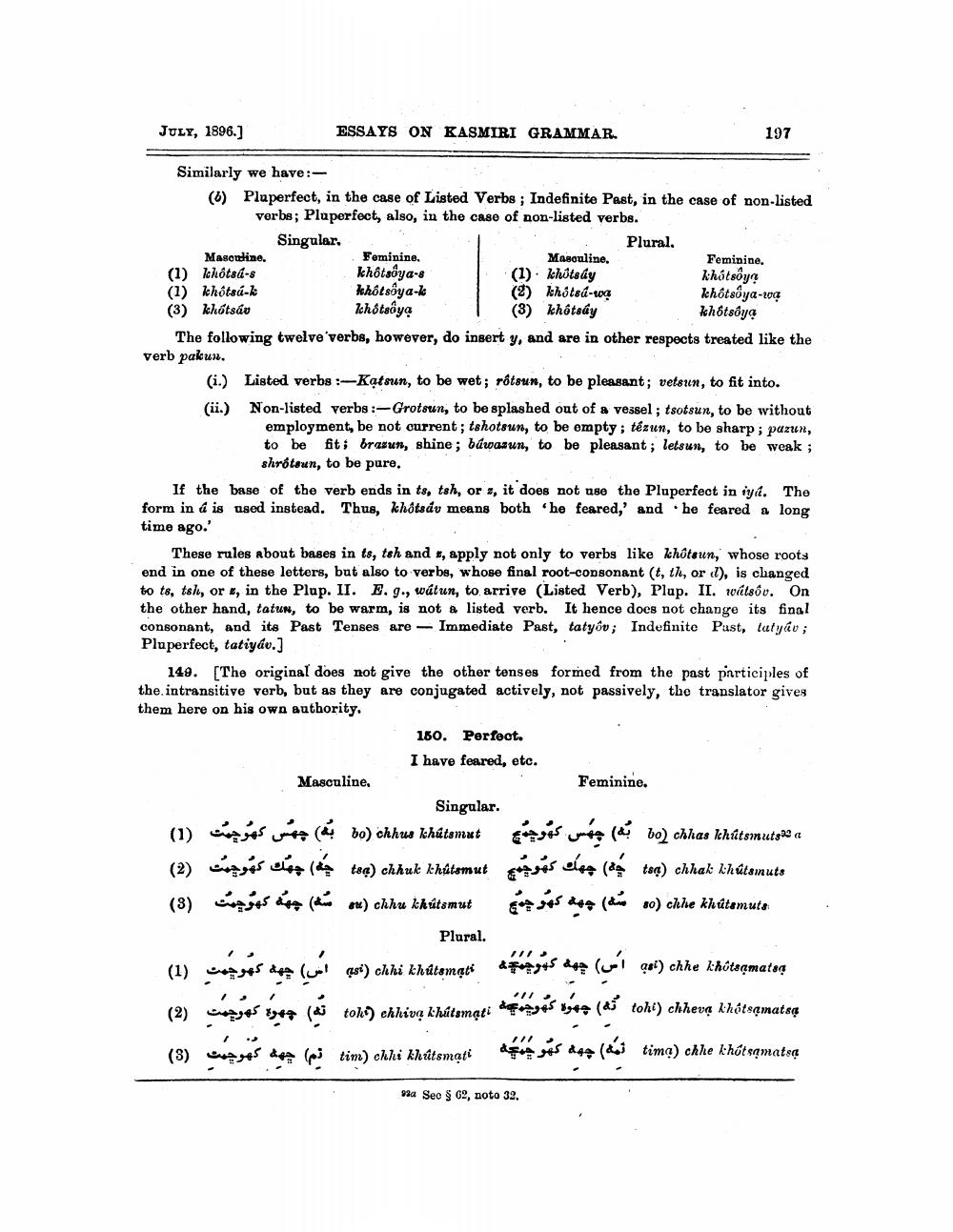________________
JULY, 1896.]
ESSAYS ON KASMIRI GRAMMAR.
197
Similarly we have:(6) Plaperfect, in the case of Listed Verbs ; Indefinite Past, in the case of non-listed
verbs; Pluperfect, also, in the case of non-listed verbs. Singular.
Plural Masculine. Feminine,
Masouline.
Feminine. (1) cốt84-8
khôtsoya-s (1): khớtsấy
khitsông (1) khôtsá-k
khôtsôya-k (2) khôted-toa
khốtejua-ta (3) khótsáv
khôteốạ (8) khôtsấy
khstsônya The following twelve verbs, however, do insert y, and are in other respects treated like the verb pakun.
(i.) Listed verbs :-Katsun, to be wet; rôtsun, to be pleasant; vetsun, to fit into. (ü.) Non-listed verbs :-Grotsun, to be splashed out of a vessel ; tsotsun, to be without
employment, be not current; tshotsun, to be empty; tézun, to be sharp ; pazur, to be fiti bradun, shine; báwazun, to be pleasant; letsun, to be weak;
shrotsun, to be pure. If the base of the verb ends in ts, tsh, or 2, it does not use the pluperfect in iya. The form in á is used instead. Thus, khôtsáv means both 'he feared,' and he feared a long time ago.'
These rules about bases in ts, tsh and I, apply not only to verbs like khôteun, whose roots end in one of these letters, but also to verbs, whose final root-consonant (t, th, or 1), is changed to ts, tsh, or, in the Plup. II. E. g., wátun, to arrive (Listed Verb), Plup. II. witsou. On the other hand, tatur, to be warm, is not a listed verb. It hence does not change its final consonant, and its Past Tenses are - Immediate Past, tatyóv; Indefinite Pust, tałyáv; Pluperfect, tatiyav.]
149. [The original does not give the other tenses formed from the past participles of the intransitive verb, but as they are conjugated actively, not passively, the translator gives them here on his own authority,
180. Perfect.
I have feared, etc. Masculine.
Feminine. Singular.
(1) com jos wat (a bo) chhu khátsmut eigos más (a bo) chhas khitomutok a (2) images das las toa) chhuk khítomut gan gas olism ton) chhak kihútsmuts (3) agos ász (ac ow) chhu khútsmut de sus doo (do ro) chhe khütemuts.
Plural.
(1) water antalone gas) chi khátomges afts*s top (cur qu') chhe khótagmatıq (2) anyar este case tone) chhivą khítomgei et s uses (as toht) chhewą khátogmatag (3) comes top (p?tim) chhi khütemati din jus de fái tima) okhe khớt sąmatsą
sa Seo $ 62, noto 32.




